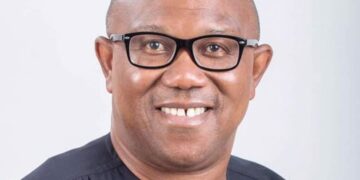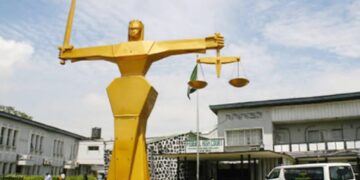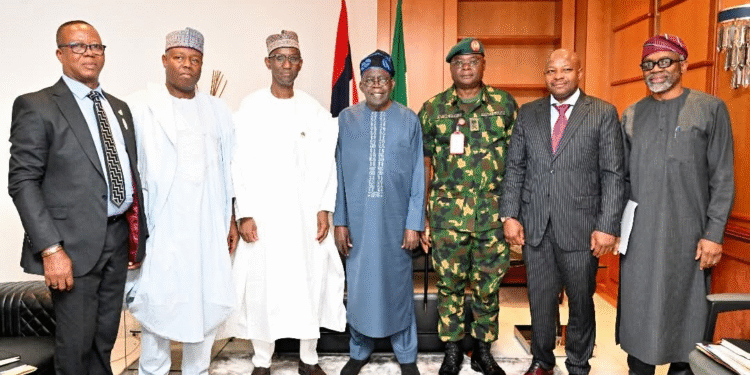Says “Enough is Enough” as killings persist in Borno, Benue, Plateau, Kwara
By Eshiorameh Sebastian, Abuja.
President Bola Tinubu has ordered an urgent and comprehensive review of Nigeria’s security strategy, demanding decisive action to halt the rising violence in Borno, Benue, Plateau, and Kwara states.
The President issued the directive during a two-hour closed-door meeting with security chiefs at the State House on Tuesday, where he condemned the relentless killings of civilians and declared, “Enough is enough.”
The National Security Adviser (NSA), Mallam Nuhu Ribadu, who briefed journalists after the meeting, disclosed that the service chiefs presented a detailed report on recent attacks, casualty figures, and the destruction of property in the affected states.
“Mr President has mandated a new approach to tackling insecurity,” Ribadu stated. “Even while he was abroad in Paris and London, he was actively monitoring the situation and issuing directives. Today’s meeting was extensive, and he has given us fresh instructions to intensify efforts.”
The NSA revealed that security chiefs had earlier visited Plateau, Benue, and Borno—states worst hit by recent violence—to assess the situation and engage with local authorities, as directed by the President.
“We assured him of our commitment and updated him on our findings. He emphasised that we must work more closely with state governors, local governments, and communities to address the root causes of these conflicts,”** Ribadu added.
President Tinubu, he said, expressed deep concern over the attacks, particularly the targeting of defenceless civilians through Improvised Explosive Devices (IEDs) and raids on vulnerable communities.
“The President made it clear that the killings must stop. He said, ‘Enough is enough.’ All security agencies—the military, police, and intelligence services—are under strict instructions to restore peace swiftly,” the NSA stated.
Ribadu further noted that the new strategy would involve stronger collaboration with grassroots leaders to improve intelligence gathering and crisis response.
“Security is not just a federal matter. Local governments and traditional institutions must be actively involved because many of these crises stem from communal tensions,” he explained.
The meeting was attended by the Chief of Defence Staff, General Christopher Musa; Chief of Army Staff, Lt. General Taoreed Lagbaja; Inspector-General of Police, Kayode Egbetokun; and heads of intelligence agencies.








































Discussion about this post